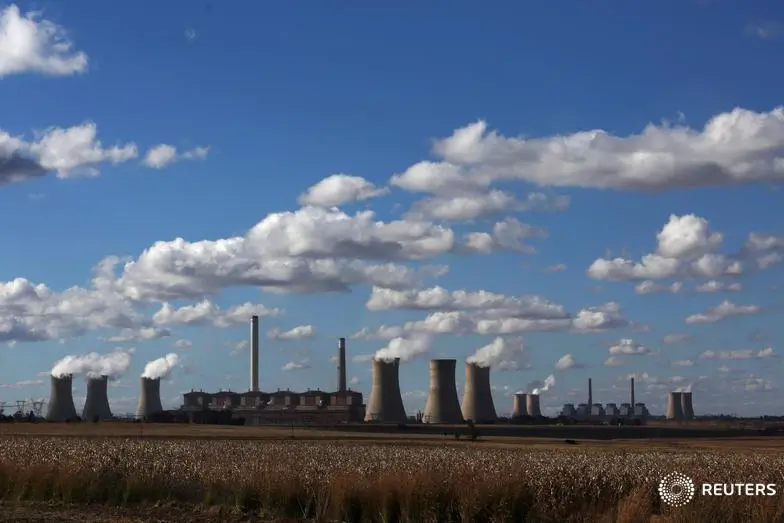PHOTO
JOHANNESBURG - South Africa's Treasury has paid 16 billion rand ($852 million) to heavily indebted power utility Eskom, the first tranche of a debt relief package that will wipe off more than half its liabilities, acting CEO Calib Cassim said on Tuesday.
The Treasury offered a total of 254 billion rand to the state-owned company in February so it can pay its debts to global financial institutions, which currently top 423 billion rand.
Analysts view the offer as a crucial lifeline to help Eskom cope with a cash crunch that has hobbled its ability to tackle daily power blackouts across South Africa.
"We have received the first drawdown in terms of the Eskom debt relief bill," Cassim told Reuters on the sidelines of the BRICS summit, adding it would help the company meet its debts on maturity.
He added the payment came in at the end of July, and the next tranche was expected in October.
Corruption, cost overruns, and widespread theft of coal and transmission line materials have conspired with unrealistically low tariffs to almost bankrupt Africa's biggest power company.
The government handouts come at a huge cost for the country: Eskoms's total debt is almost equal to the total national budget for education, and more than the spending on health or social development.
So that Eskom does not get itself into more debt, Cassim said the relief package stipulated that Eskom cannot take out any further loans for the next four years. The Treasury had previously said the restriction was for three years.
A consequence of this is that Eskom will not be able to get any of the $8.5 billion that was committed to South Africa by wealthy nations at U.N. climate talks in November 2021 for its transition to clean energy.
Part of those loans were meant for the company to shut down its coal-fired plants, and Cassim said it wasn't clear how or when Eskom would access this funding.
"We should not lose the opportunity of tapping into those things available to us as a country," he said.
($1 = 18.7769 rand)
(Reporting by Promit Mukherjee; Editing by Tim Cocks and Mark Potter)




















